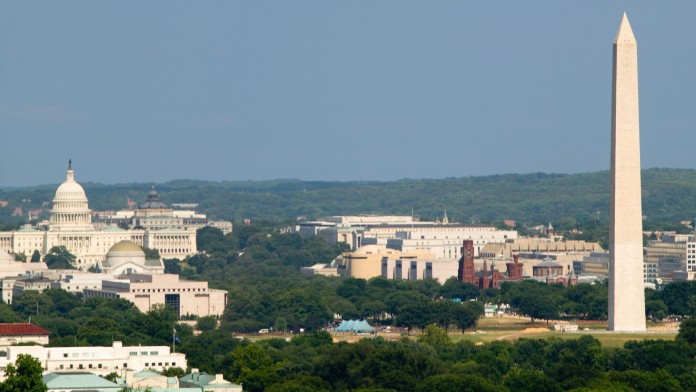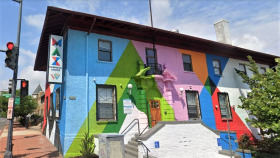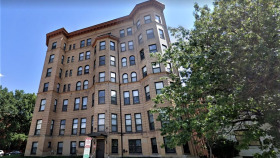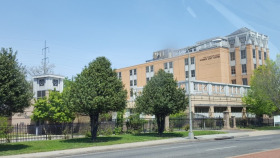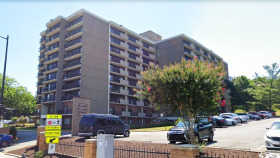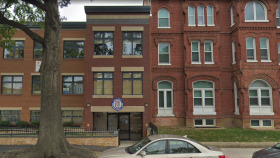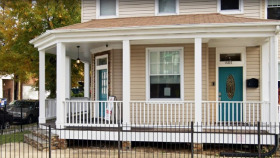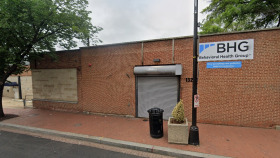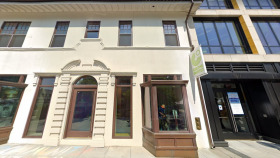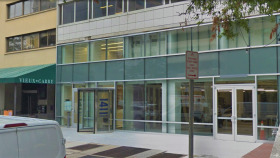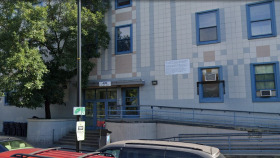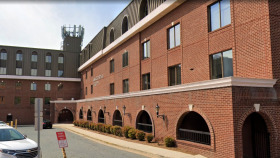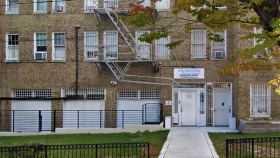Washington, D.C., Alcohol and Drug Use Statistics
Many Washington, D.C., residents live with drug or alcohol addiction. According to data collected by the Substance Abuse and Mental Health Services Administration, D.C. has long dealt with serious substance abuse issues within the community. Statistics of note include:1,2
- In 2020, roughly 94% of opioid overdoses in Washington D.C. involved fentanyl.
- Since 2018, the rate of opioid-related overdoses in D.C. has nearly doubled.
- More than 400 D.C. residents died from an opioid-related overdose in 2020 alone.
- In 2019, one out of every 10 Washington D.C. residents had an alcohol use disorder.
- One of out every eight D.C. residents had any form of substance use disorder in 2019.
How Much Does Alcohol and Drug Rehab Cost in Washington, D.C.?
The cost of going to drug or alcohol rehab in Washington, D.C., can vary based on the type of treatment facility you select, the type of treatment you need, and other factors, including:3, 4
The type of amenities offered (holistic therapies, luxury accommodations, and other high-end amenities increase the overall cost of treatment)
- The treatment setting that’s best for your needs (outpatient rehab programs typically cost less than inpatient programs)
- Whether you have private or public health insurance that covers part or all of your rehab program
- The type of insurance a rehab facility accepts
- Whether the facility receives funding (donations and government funding may allow a facility to offer reduced-cost treatment services)
- The length of your treatment program (the longer you remain in treatment, the more your rehab program will likely cost)
According to the Substance Abuse and Mental Health Services Administration (SAMHSA), there are 124 alcohol and drug rehabs in Washington, D.C., and the surrounding area. Of those facilities, 86 accept private health insurance and 88 take Medicaid insurance. Some non-profit and government-funded rehab centers in the area provide financial assistance to help make treatment more accessible to all.5
How to Find Free Rehabs in Washington, D.C.
Washington, D.C., has government-funded drug rehabs that receive subsidies that allow them to provide addiction treatment and/or mental health services at little to no cost to those in need. Although these facilities are a public health service, their services are generally only available to individuals who do not have the financial resources or incal health and human services agency for more information.
Does Insurance Cover Alcohol and Drug Rehab in Washington, D.C.?
Generally, yes. According to the Affordable Care Act (ACA), both private and public insurers must provide coverage for essential behavioral health benefits, which include addiction and mental health treatment. Furthermore, according to the Mental Health Parity and Addiction Equity Act (MHPAEA), providers cannot place more restrictive coverage limitations on behavioral health benefits than they place on other essential health benefits.6, 7
Private Insurance
If you carry private health insurance, your plan should provide partial or full coverage for treatment at Washington, D.C., drug rehabs or alcohol rehabs. Be aware, however, that the of your coverage depends on your provider and plan and whether local rehab facilities accept your insurance.
Popular private health insurance providers in the Washington, D.C., area include Aetna, Cigna, CareFirst, Kaiser Foundation Health Plans, Optimum Choice, and UnitedHealthcare. If you have insurance through one of these providers, it should cover a portion or all of your rehab program at local facilities that accept your plan.
Medicaid
Medicaid is a public health insurance program jointly funded by the federal and state governments. This type of insurance is available to eligible low-income adults, their dependents, people over the age of 65, and certain people with disabilities. If you have Medicaid, you can use your plan to help cover the cost of alcohol and drug rehab. Medicaid also provides coverage for mental health benefits, such as treatment for co-occurring disorders.8
Medicare
Medicare is a public insurance program provided by the federal government. This type of insurance is only available to elderly individuals over the age of 65 and some younger people with disabilities. Although Medicare does cover addiction treatment, it will only pay for treatment services deemed reasonable and necessary. These services include inpatient treatment, intensive outpatient programs (IOPs), certain medications, and mental health treatments.9
How Do I Know if My Insurance Plan Covers Drug Addiction Treatment?
If you have health insurance, it should provide partial or full coverage for alcohol or drug rehab in Washington, D.C. But not all local rehab facilities accept all types of insurance, so you’ll need to verify your coverage at each facility you’re considering. For help verifying your insurance at any Washington, D.C., alcohol rehabs or drug rehabs, you can call our free helpline at
800-681-1058
(Who Answers?)
for 24/7 assistance. You can also call the number on the back of your insurance card to learn more about your benefits and extent of coverage.
How to Finance Substance Abuse Treatment in Washington, D.C.
If you’re unable to get into any free Washington, D.C., drug rehabs, or don’t have insurance, you have other options that can help you pay for addiction treatment. Income-based treatment services, scholarships, and payment plans can reduce the cost of your care or spread your costs out over time to make rehab more affordable.
To find local rehab facilities that offer payment assistance, you can search online for “drug rehabs near me” or “alcohol rehabs near me.” Then contact each facility directly to ask whether they offer any type of financial assistance.
Apply for a Rehab Scholarship
Addiction treatment scholarships provide funding for rehab that you never have to pay back. Generally, these scholarships are only available to people who do not have the resources to pay for treatment and would not otherwise be able to enroll in a rehab program.
According to SAMHSA, there are 25 Washington, D.C., drug rehabs and alcohol rehabs that offer various forms of payment assistance.5 If you’re interested in applying for scholarships, call the treatment facilities you’re interested in to ask whether they offer financial assistance and what the requirements are.
Find a Sliding Scale Rehab Program
According to SAMHSA, there are 35 Washington, D.C., drug rehabs and alcohol rehabs that offer sliding scale treatment services.5 These rehabs use your monthly or annual income to calculate your out-of-pocket treatment costs and only require you to pay what you can reasonably afford. If you’re interested in enrolling in a local sliding scale rehab program, you can find facilities that offer income-based services by calling your health services agency. You can also reach out to our helpline at
800-681-1058
(Who Answers?)
for assistance locating these facilities.
Choose a Program that Offers Payment Plans
If you can afford to pay for rehab out of pocket but lack the resources to pay a lump sum upfront, you may be eligible for a payment plan through your chosen rehab center. Rehab payment plans finance the total cost of your treatment and require you to pay back your balance in manageable increments over time. To qualify for this type of financing, you’ll need to fill out an application and provide proof of income and information about your credit history. If approved, you’ll sign a financing contract that details the length of your payment plan and payment amounts. Depending on your needs, you may be able to defer payments until your treatment program is over and you resume your job.
Popular Drug and Alcohol Rehab Centers in Washington, D.C.
Whitman Walker Health
Whitman Walker Health has two locations in the D.C. area that provide outpatient treatment programs for adults with addiction. This facility offers both abstinence-based and harm reduction programs, as well as special services for members of the LGBTQ+ community. Specialized programming for those who use heroin, opioid, and methamphetamine is available here, as is dual diagnosis treatment for co-occurring mental health disorders.
Life Stride
Life Stride offers a wide range of behavioral health services for adults and young adults with addiction and/or mental health disorders. This facility provides outpatient group programming for substance abuse, evidence-based behavioral therapies, specialized day programs for adults over the age of 55, housing support, and employment assistance.
Federal City Recovery
Federal City Recovery specializes in treatment for substance use and mental health disorders and offers targeted programs for men, women, and LGBTQ+ individuals. Intensive residential treatment, outpatient programs, recovery and transitional housing, social detoxification, employment preparation workshops, and aftercare support are all available here.
Kolmac Outpatient Recovery
Kolmac Outpatient Recovery is a CARF-accredited alcohol and drug rehab facility that offers a wide range of outpatient services for adults with alcohol and/or drug addiction. Detoxification, intensive outpatient programs (IOPs), standard outpatient rehab, telehealth IOPs, telehealth detox, and low-intensity virtual rehab programs are available here.
Addiction Treatment Settings: Inpatient vs. Outpatient Drug Rehab
Your addiction status, mental health status, treatment needs, and budget all play roles in determining whether inpatient or outpatient rehab is right for you.
Inpatient Rehab
Inpatient alcohol or drug rehab in Washington, D.C., may be right for you if you live with severe addiction or a co-occurring mental health condition. Inpatient treatment takes place in a stable, highly structured residential environment that provides an inclusive and immersive setting where recovery and healing are the primary focus. Depending on your needs, you may need to undergo medical detox before your formal treatment program begins. This pretreatment program will allow you to withdraw from alcohol and/or drugs as safely as possible.
While engaged in residential treatment, you’ll participate in daily therapy sessions, either individually or with a group of your peers. You’ll live at the rehab facility for the duration of your treatment program, which may last 30 to 90 days. If your treatment team believes you can benefit from a longer stay, your program may last longer than three months.
Most inpatient rehab facilities provide access to a wide variety of evidence-based addiction therapies, such as talk therapy. Many also offer holistic therapies like yoga, nature therapy, art therapy, animal therapy, and meditation.
Partial Hospitalization Programs
Partial hospitalization programs (PHPs) provide the highest level of addiction therapy available in an outpatient setting. These programs typically provide five to seven days of treatment per week, and treatment sessions usually last several hours per day. While in treatment, you’ll participate in a variety of evidence-based therapies and can return home each day when treatment concludes. Often, PHPs function as step-down treatment after inpatient rehab. This level of care may also be a good option if you have a solid support system at home and can travel daily for rehab.
Intensive Outpatient Programs
Intensive outpatient programs, also called IOPs, provide three to five days of intensive addiction therapy per week, with each session lasting several hours. These programs typically involve group and individual therapy, relapse prevention education, and substance abuse education. Vocational training, life skills training, and family counseling may also be part of an IOP.
While enrolled in an IOP, you can live at home, but you must have transportation to and from each treatment session. This type of rehab program may be a good option for your needs if you must continue going to work or school or caring for family members while engaged in treatment. IOPs can also function as step-down care to help you gradually transition back to normal, daily life after inpatient treatment.
Standard Outpatient
Standard outpatient programs provide the least intensive form of addiction treatment. Generally, these programs meet one to three times per week for group therapy and substance abuse education. Most programs provide five to 10 hours of treatment per week and offer flexible meeting times for persons who have other obligations like school, work, or family care. Often, standard outpatient treatment functions as a form of aftercare, which provides ongoing community and relapse prevention support.
Telehealth and Online Addiction Treatment
Telehealth has grown rapidly in recent years, making many forms of behavioral healthcare more accessible to more people. If you can’t travel to an alcohol or drug rehab in Washington, D.C., because you lack transportation or have other health issues, online treatment may be for you. Virtual rehab programs typically meet via video calls, so you’ll need an internet-connected device to access therapy sessions. Generally, these programs provide a variety of services, which may include:10
- Substance use assessments and treatment referrals
- Group therapy
- Evidence-based therapies, such as cognitive behavioral therapy and motivational enhancement therapy
- Individual counseling
- Peer support services
Medical Detox
Medical detox is a pretreatment program that provides you with 24/7 supervision and care, allowing you to withdraw from substances as safely and comfortably as possible. If you need to eliminate alcohol, opioids, benzodiazepines, or barbiturates from your system, medical detox will likely be the first step in your addiction treatment program. Be aware that although detoxification can help you jumpstart your road to recovery, it is not treatment in and of itself. Rather, a supervised detox program will help you manage withdrawal symptoms with medications and IV fluids. It will also help ensure you’re physically and mentally prepared to begin your formal rehab program.
Specialized Drug Rehab in Washington, D.C.
Veteran Rehab
Veteran-specific rehab programs are sensitive to retired military members’ unique experiences and needs in addiction treatment. These programs not only provide invaluable support and community with other former military members but also address the mental health repercussions of involvement in active duty. Because many veterans are susceptible to developing co-occurring addiction and mental health conditions, such as PTSD, veteran rehab programs often specialize in dual diagnosis treatment.
LGBTQ+ Rehab
Members of the LGBTQ+ community often experience strained family relationships, family rejection, societal pressures, homophobia, gender dysphoria, and other highly burdensome challenges. These mental, emotional, and physical challenges can contribute to substance abuse and the development of co-occurring mental health conditions, which can complicate recovery. If you identify as LGBTQ+, you may benefit from a rehab program that’s sensitive to the challenges and obstacles you face, as well as your lived experiences. Being in community with other LGBTQ+ persons who are also working through recovery can provide you with invaluable support and understanding throughout your treatment program.
Men-Only Rehab
Men-specific rehab programs are sensitive to the unique challenges that men with addiction often face, such as career obligations, reputational damage, and societal pressure to be non-emotive. Addiction treatment programs for men can provide you with a supportive and encouraging environment where you can feel accepted and understood as you work through recovery. Men-specific programs can also provide you with valuable community with other men in treatment whom you can lean on for long-term support.
Women-Only Rehab
Many Washington, D.C., drug rehabs and alcohol rehabs offer women-only treatment programs that cater to the unique needs of women in recovery. These programs provide a safe, supportive space where women can talk freely about their lived experiences and unique challenges, such as traumas and partner violence. Many women-specific programs also offer special services to make treatment more accessible for women, such as childcare and educational services. Perinatal treatment services, which provide parenting education and supportive resources, are often available through women-only rehab programs, too.
Teen Rehab
Adolescents experience a wide range of developmental, cognitive, and emotional changes as they approach the transition to adulthood. Teen-specific rehab programs are sensitive to these changes and the unique needs that accompany them. Teen programs also recognize that adolescents may be more prone to co-occurring addiction and mental health disorders due to bullying and peer pressure in schools. These programs provide a supportive and understanding environment where teens can feel safe and accepted in expressing their needs and working through recovery together.
Should I Travel to Washington, D.C., for Drug and Alcohol Rehab?
You may want to travel to a drug or alcohol rehab in Washington, D.C., if you need a change of pace from your current situation. You may also want to consider Washington, D.C., alcohol rehabs or drug rehabs if you:11, 12
- Have health insurance that covers treatment at a rehab facility in the area
- Have family or friends in the city who can support you as you work through recovery
- Do not have local access to the addiction and/or mental health treatment resources you need
- Want to enroll in a treatment facility away from your normal environment, which may contain triggering situations or people that could interfere with your recovery progress
Ultimately, the decision to travel is up to you and largely dependent on your financial situation. If you feel that traveling would benefit your recovery, you may want to consider treatment in one of the D.C. neighborhoods below.
Neighborhoods in Washington, D.C., to Consider for Treatment
Washington, D.C., has several neighborhoods, many of which are well known for their history. Some areas of the city you may want to consider for treatment include:13
Downtown: This centrally located D.C. neighborhood is known for its chic, cosmopolitan feel, plethora of free museums and galleries, high-end shopping, historic buildings and landmarks, and many unique eateries and entertainment opportunities.
Anacostia: This neighborhood is located just east of the Anacostia River, for which it was named. The area is known for its rich African American history, plethora of bike paths, and historic museums.
Foggy Bottom: This neighborhood lies between the National Mall and the shore of the Potomac River. Foggy Bottom is packed with historic buildings, monuments, museums, landmarks, parks, and a near-endless array of things to do. The area offers quick access to public transportation, either by metro or bus.
East End: Also known as D.C.’s old downtown quarter, this neighborhood is home to Chinatown, Mount Vernon Square, Judiciary Square, and Penn Quarter. The area has many attractions and historic landmarks and buildings, as well as easy access to public transportation.
Hill East: This neighborhood straddles Northeast and Southeast Washington and is primarily residential. The area is known for its proximity to the Anacostia River, the Congressional Cemetery, and many green spaces.
Alcohol and Drug Laws in Washington, D.C.
Washington, D.C., Good Samaritan Overdose Prevention Law
In Washington, D.C., the Good Samaritan Overdose Prevention Law provides limited legal protection for any person who in good faith contacts emergency medical personnel or the police to report a suspected overdose. Neither the person experiencing an overdose nor the person who calls 911 can be arrested nor prosecuted for possession of or use of illicit substances or paraphernalia. However, this law only protects those who have illicit substances intended for personal use.14
District of Columbia Naloxone Standing Order
The D.C. Naloxone Standing Order allows eligible persons to get a prescription for pharmacy-provided naloxone if they cannot obtain the medication from their healthcare provider. This law aims to reduce overdose-related deaths by providing this life-saving drug to people who are at risk of experiencing an opioid-related overdose.15
Aftercare Options for Post-Rehab Success
When your rehab program ends, aftercare begins. Also known as continuing care, aftercare provides ongoing counseling, education, and other supportive resources to help you avoid relapse and stay strong in your recovery. Your rehab program may provide aftercare support and will base your care options on your unique needs.
If you need more time in treatment at a less intensive level, a step-down care program may be part of your aftercare plan. Aside from step-down care, other supportive aftercare resources you may want access to include:16
- Peer support groups
- Recovery support groups like AA, NA, and SMART Recovery
- Sober-living housing
- Ongoing individual, family, or group counseling
- Ongoing alcohol and drug education
- Skill building and vocational training
Whatever your addiction treatment needs may be, Washington, D.C., has many alcohol and drug rehab facilities that can help you begin your path to recovery. If you need assistance finding the best rehab program for your unique needs and budget, we’re always here to help. Call our free, 24/7 helpline at
800-681-1058
(Who Answers?)
to speak with a specialist who can help you learn more about your local rehab options.
Resources
- Substance Abuse and Mental Health Services Administration. (2020). Behavioral Health Barometer: District of Columbia, Volume 6.
- Government of the District of Columbia, Office of the Chief Medical Examiner. (2021, April 20). Opioid-related Fatal Overdoses: January 1, 2016 to January 31, 2021.
- Substance Abuse and Mental Health Services Administration. (2014). What Is Substance Abuse Treatment? A Booklet for Families.
- French, M. T., Popovici, I., & Tapsell, L. (2008). The Economic Costs Of Substance Abuse Treatment: Updated Estimates and Cost Bands for Program Assessment and Reimbursement. Journal of Substance Abuse Treatment, 35(4), 462-469.
- Substance Abuse and Mental Health Services Administration. (2022). Treatment Locator Map.
- Substance Abuse and Mental Health Services Administration. (n.d.) What Does the Affordable Care Act Mean for Behavioral Health?.
- Centers for Medicare & Medicaid Services. (n.d.). The Mental Health Parity and Addiction Equity Act (MHPAEA).
- Medicaid.gov. (n.d.). Behavioral Health Services.
- Department of Health and Human Services, Centers for Medicare & Medicaid Services. (2016). Medicare Coverage of Substance Abuse Services.
- Health Resources & Services Administration. (2021, July 2). Best practice guide: Telehealth for behavioral health care.
- National Institute on Drug Abuse. (2020, May 29). How do we get more substance-abusing people into treatment?.
- Polcin, D. L., Korcha, R., Bond, J., & Galloway, G. (2010). What Did We Learn From Our Study on Sober Living Houses and Where Do We Go From Here?. Journal of psychoactive drugs, 42(4), 425-433.
- Washington.org. (n.d.). DC Neighborhoods.
- Council of the District of Columbia. (n.d.). Code of the District of Columbia. 7—403. Seeking health care for an overdose victim.
- DC Health Regulation & Licensing Administration. (2018). District of Columbia Naloxone Standing Order.
- McKay J. R. (2009). Continuing Care Research: What We Have Learned and Where We Are Going. Journal of Substance Abuse Treatment, 36(2), 131-145.

